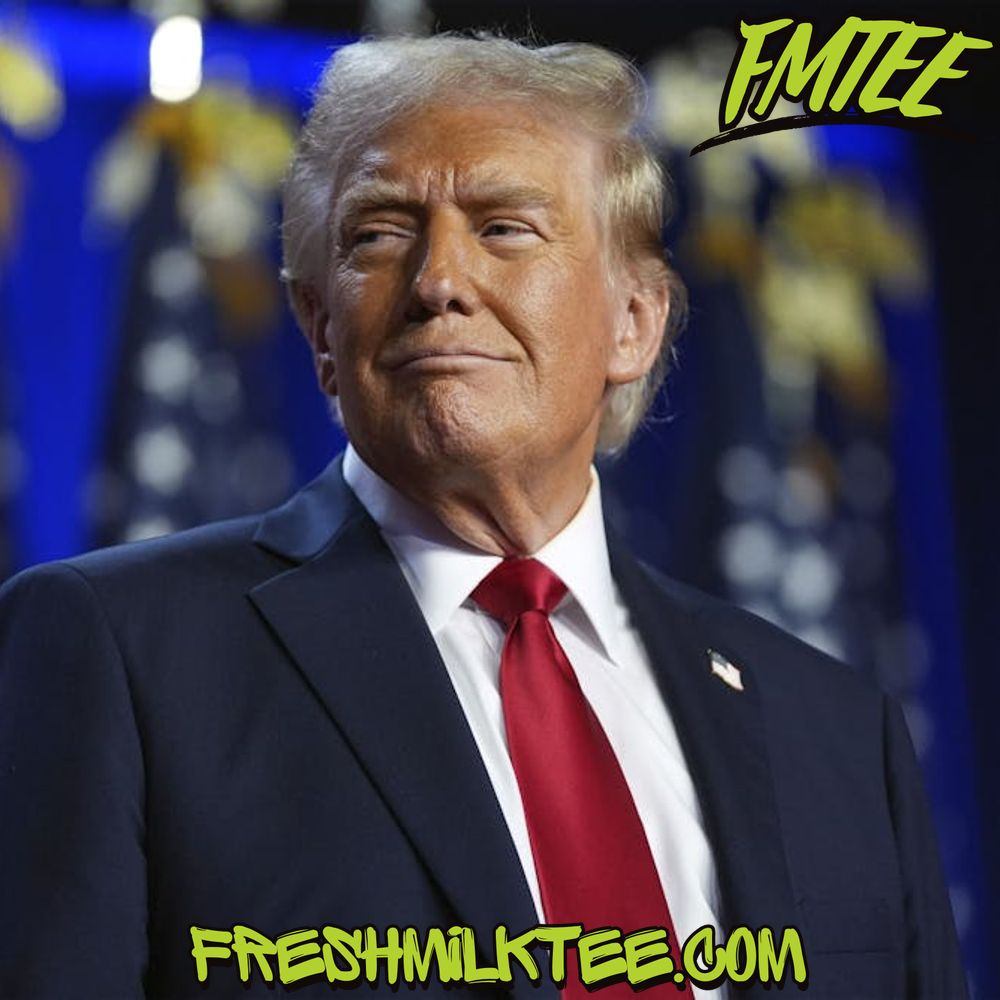Blog
What Are 5 Informal Qualifications for President?
Introduction: Understanding Informal Qualifications for President
Becoming the President of the United States is a goal many dream of, but there are more to the journey than just meeting the formal qualifications set out by the U.S. Constitution. While the Constitution outlines clear requirements, such as being a natural-born citizen, at least 35 years old, and a resident of the U.S. for 14 years, there are informal qualifications for becoming president that can heavily influence a candidate’s success. These informal presidential qualifications often include personal qualities, leadership traits, and life experiences that go beyond what is legally required.
In this article, we will explore the informal qualifications for U.S. presidents, looking at the key leadership traits, personal qualities, and experiences that have shaped successful presidents. Understanding these qualities is crucial for anyone interested in the presidency or simply curious about the dynamics of presidential leadership.
What Are Informal Presidential Qualifications?
Definition of Informal Qualifications for Becoming President
Informal qualifications refer to the qualities and experiences that are not explicitly outlined in the Constitution but are often seen as essential for presidential success. These non-constitutional qualifications are critical for presidential leadership because they help determine how a candidate will perform in office, especially in the face of complex national and international challenges.
Unlike the formal requirements, which are clear-cut, the informal qualifications are subjective and can vary depending on the political climate, the country’s needs, and the public’s expectations.
Distinction Between Constitutional and Non-Constitutional Requirements
The constitutional requirements for the U.S. presidency are well-known and include basic eligibility criteria such as age, citizenship, and residency. However, the informal requirements are just as crucial for a president’s ability to lead effectively. These include leadership skills, emotional intelligence, political experience, and public perception—all of which can significantly affect a president’s ability to govern and connect with the American people.
Leadership Skills for U.S. Presidents
Key Leadership Traits That Successful U.S. Presidents Often Exhibit
When it comes to presidential success, leadership skills are paramount. Presidents must be able to make difficult decisions, manage crises, and inspire the nation. While leadership traits such as determination, foresight, and adaptability can be developed over time, they often stem from life experiences and personal attributes.
Presidential Leadership Traits: From Vision to Execution
A strong leader must be visionary, able to see the bigger picture and make decisions that will shape the future of the country. Presidents like Abraham Lincoln, Franklin D. Roosevelt, and John F. Kennedy were able to offer clear, forward-thinking visions that resonated with Americans.
In addition to visionary leadership, crisis management is another essential trait. Presidents must be able to act decisively in times of national or international turmoil. From wars to economic depressions, presidents who can remain calm under pressure and guide the nation through crises are often the ones remembered for their leadership.
Lastly, decision-making skills are vital. The ability to make sound, informed decisions in the face of uncertainty is one of the key traits of successful presidents.
Personal Qualities That Contribute to Presidential Success
Character Traits Such as Resilience, Integrity, and Empathy
Beyond political experience and leadership abilities, certain personal qualities are often crucial for presidential success. Resilience, integrity, and empathy are three of the most essential traits that help a president connect with citizens and navigate the complex political landscape.
How Personal Experiences Shape Presidential Leadership
A president’s life experiences play a significant role in shaping their leadership style. Many U.S. presidents come from diverse backgrounds and experiences that contribute to their unique perspectives. For example, Barack Obama’s early life and rise through political ranks gave him a deep understanding of social issues, while George Washington’s military background gave him the experience needed to lead a new nation.

Experience Needed to Become President: Beyond Formal Education
The Value of Life Experience, Political Background, and Public Service
While formal education and political degrees are often considered advantages, life experience and a strong political background are often more important. Presidents like Ronald Reagan and Donald Trump, who had little formal political experience, became effective leaders due to their public service careers, communication skills, and understanding of what resonates with voters.
Importance of Relatable Experience to Connect with the Electorate
Presidents must connect with the public, and the experience needed to be president is often more about relatability than academic achievements. A president who has experienced personal or professional challenges is often seen as more in touch with the concerns of ordinary citizens.
How Informal Experiences Shape a Candidate’s Perspective
Candidates with non-political backgrounds often bring a fresh perspective to the presidency. While their experience needed to be president may differ from traditional politicians, their leadership skills can still drive success in the White House.
Examples of Presidents Without Political Experience
Some of the most effective presidents had limited or no prior political experience. For instance, Dwight D. Eisenhower, a career military officer, led the country successfully without being a career politician. Donald Trump, a businessman, also became president despite not having held a traditional political office before his term.
Non-Official Qualifications for U.S. Presidents
Unofficial Qualifications: Charisma, Public Speaking, and Media Presence
In today’s world, charisma, public speaking, and media presence are among the most important non-official presidential qualifications. Presidents must be able to inspire and communicate effectively with the public, and having a strong presence in the media can significantly boost a candidate’s visibility.
The Role of Social and Communication Skills in Gaining Public Trust
A president’s ability to communicate directly with citizens can often be more powerful than formal qualifications. Through speeches, press conferences, and social media, a president’s message can reach millions of people, which is why media-savvy presidents like John F. Kennedy and Barack Obama have resonated with voters across the nation.
Building a Strong Public Image and Connection with Voters
Public image is everything in modern politics. Presidents who can build a strong, trustworthy image are often able to win elections and remain effective throughout their terms. A president’s charisma, personality, and image management are key in gaining the public’s support.
Characteristics of Great Presidents: What Sets Them Apart?
A Deep Dive into the Personal Qualities and Experiences of the Most Impactful Presidents
Some of the greatest U.S. presidents possessed unique personal attributes that set them apart. Presidents like Abraham Lincoln, who demonstrated emotional intelligence and resilience in times of national crisis, or Franklin D. Roosevelt, whose ability to adapt to changing political landscapes led to his success during the Great Depression, are often seen as role models of presidential greatness.
The Significance of Emotional Intelligence and Understanding Public Sentiment
Presidents who are emotionally intelligent are better able to understand and connect with the emotions and concerns of the public. This trait is often linked to presidential success, as it helps leaders navigate complex issues and maintain public trust.
The Ability to Adapt to Changing Political Landscapes and Maintain Popularity
A successful president must also be able to adapt to changing political environments. This ability to pivot and respond to the evolving needs of the country is what separates effective presidents from those who falter.
Conclusion: The Balance Between Formal and Informal Qualifications
Summary of the Key Informal Qualifications for the Presidency
While formal qualifications are necessary, the informal qualifications for U.S. presidency play a crucial role in determining whether a candidate will be successful in office. Leadership skills, personal qualities, and life experiences all contribute to a president’s ability to lead the nation effectively.
The Importance of Both Formal Qualifications and Personal Traits in Achieving Success as President
It is clear that the most effective presidents possess a combination of formal qualifications and informal qualities. The non-official presidential qualifications are often just as important as constitutional ones in determining how well a president can govern and represent the American people.
Frequently Asked Questions (FAQs)
1. What are the informal qualifications for becoming president?
Informal qualifications include leadership traits, personal qualities like integrity and empathy, and experience such as political background, public service, and life experience.
2. Do you need political experience to become president?
No, while political experience can be beneficial, presidents like Ronald Reagan and Donald Trump show that non-political backgrounds can also lead to success.
3. Why is emotional intelligence important for presidents?
Emotional intelligence helps presidents connect with citizens, make decisions based on public sentiment, and manage crises effectively.
4. Can a president without media skills succeed?
While it’s not impossible, a president’s media presence and communication skills are often critical to gaining public support and succeeding in modern politics.
If possible, please visit dinounicorn.com or freshmilktee.com to support us.

